Opzoeken
1 - 15 van 102 nieuws bekijken
-
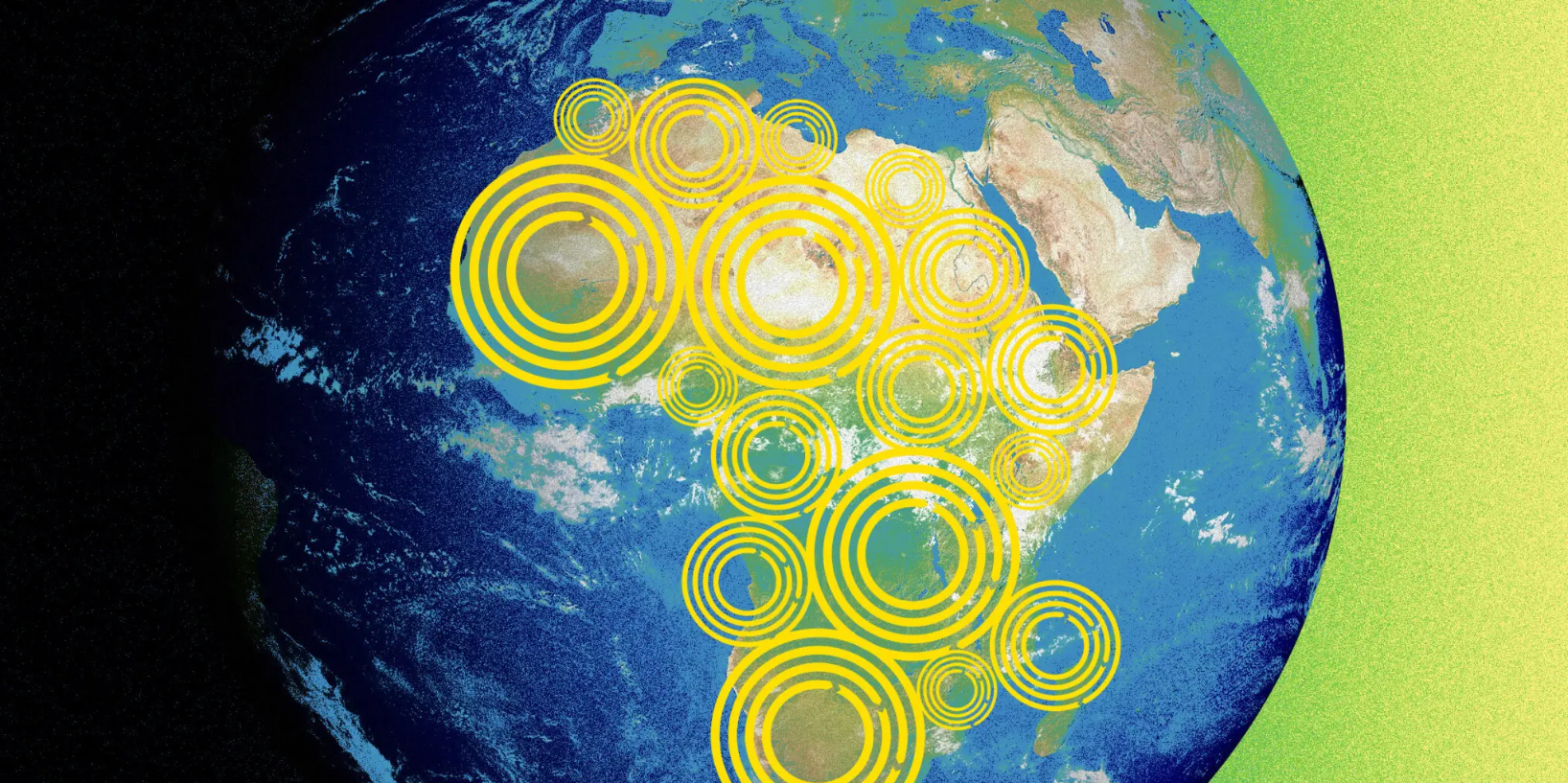
The EU Circular Economy Resource Centre concludes a packed trip to Kenya
Nicoletta FAVARETTO | 04/02/2026
Experts from the EU Circular Economy Resource Centre (EU CERC) spent a productive week in Kenya in December 2025. The visit was aligned with two major events: the DGI Summit at the annual Latitude59 Africa-tech event, followed by the seventh session of the UN Environment Assembly (UNEA-7).Read the full article of David J. Cord here: The EU Circular Economy Resource Centre concludes a packed trip to Kenya - SitraPicture: Topias Dean, Sitra.
-
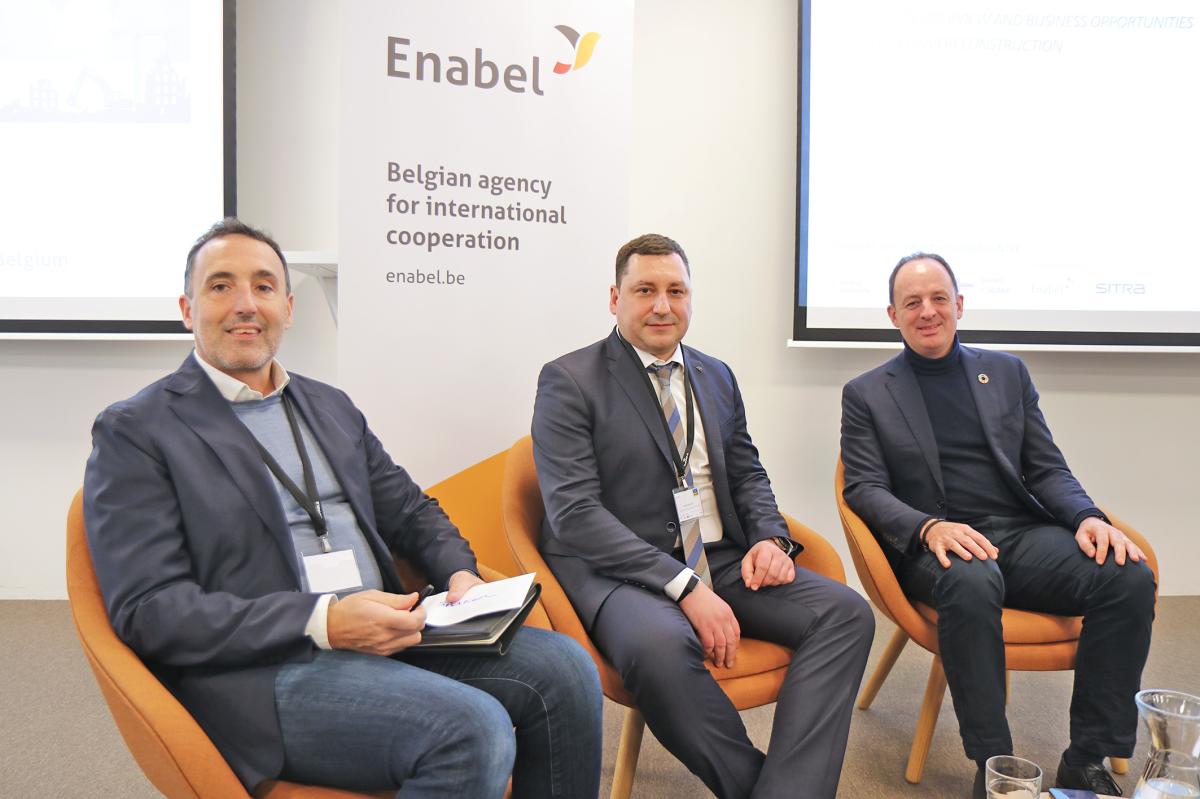
Networking event : Ukraine’s circular recovery and reconstruction
Florence HECQUET | 14/01/2026
War Debris and Hazardous Waste Management in Ukraine: Situation Overview and Business Opportunities for Circular ReconstructionEnabel, through the EU Circular Economy Resource Centre (EU CERC), together with Enabel’s BE-Relieve program in Ukraine and UNEP-Ukraine, organised an exclusive briefing and networking event focused on Ukraine’s circular recovery and reconstruction, with a special emphasis on war debris and hazardous waste management.This event brought together key Ukrainian decision-makers, companies, and sector stakeholders to provide a clear, up-to-date overview of ongoing recovery and reconstruction initiatives, outline current challenges, and highlight emerging business opportunities. The programme will place strong emphasis on interactive discussion, allowing private-sector participants to raise questions, exchange views, and explore concrete, implementable business opportunities.Event and AgendaDate: 22 January 2026Time: 14:00 – 17:00 CETVenue: Enabel Office, Rue Haute 147, BrusselsAgenda:14:00 – 14:30 Opening remarks and introduction Jean Van Wetter, CEO, Enabel Mr. Oleg Bondarenko, Chair of the Parliamentary Committee on Environmental Policy and Nature Management Mr. Ihor Zubovych, Deputy Minister of the Economy, Environment and Agriculture of Ukraine Introductory overview - Pier Carlo Sendei, Senior Programme Officer, UNEP Ukraine 14:30 – 15:15 Presentation "Situation overview and Business Opportunities in War Debris and Hazardous Waste Management for Ukraine’s Circular Reconstruction" Johan de Fraye, Executive Director, Nicole Foundation 15:15 – 16:00 Q&A Session 16:00 – 16 :10 Closing remarks 16 :10 – 17:00 Networking drinksAbout EU CERC EU CERC is a five-year project funded by the European Union and the Ministry of Foreign Affairs of Finland, and implemented by the Sitra, Finnish Innovation Fund and Enabel. The Centre aims to increase the uptake of sound and inclusive circular economy policies and business models, based on peer-to-peer exchanges and partnerships between EU and partner’s country stakeholders. About BE-Relieve BE-Relieve Ukraine is a four-year programme funded by Belgium and implemented by Enabel. It addresses urgent reconstruction needs while fostering long-term systemic change to strengthen Ukraine’s foundation for EU accession. The programme focuses on energy and circular construction, health and social protection, as well as education and employment, contributing to a more resilient and sustainable recovery for the country. About UNEP in Ukraine As the leading global authority on the environment, UNEP brings together international expertise to support Ukraine in responding to war-related environmental emergencies while simultaneously planning for green recovery and sustainable reconstruction.UNEP's work in Ukraine focuses on critical environmental issues including the assessment and management of war debris containing hazardous materials such as asbestos, protection of water resources following the Kakhovka Dam breach, development of resilient and sustainable energy systems, and support for environmental governance frameworks. Join us to connect with Ukrainian leaders, explore strategic opportunities, and contribute to building a sustainable and circular future for Ukraine.
-
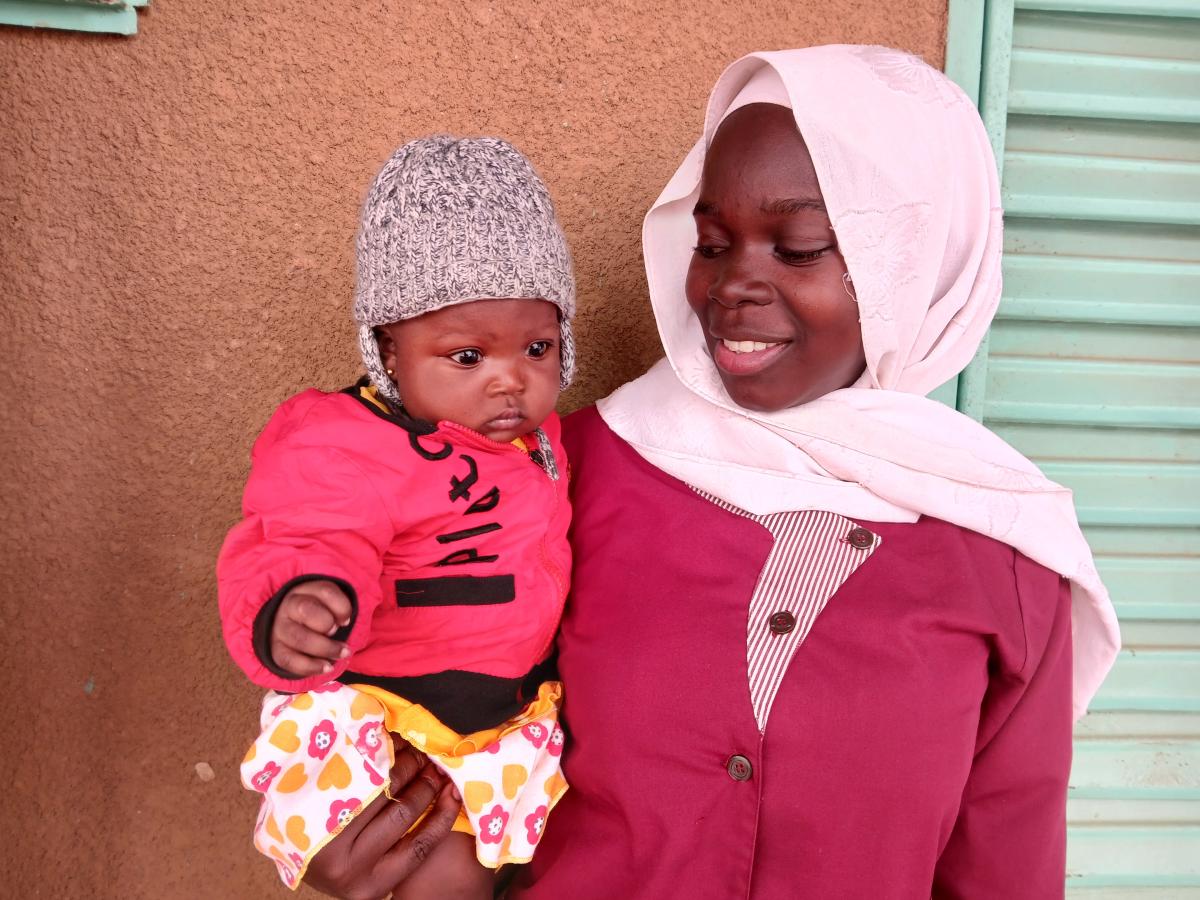
AleDia in Mali: When digital innovation becomes a lever for women’s autonomy and children’s health.
Alice BONJEAN | 06/01/2026
Imagine a health centre in Mali. During a post-deployment follow-up, a child arrives at the Kokry centre showing signs of pneumonia. Unfortunately, an inadequately trained volunteer diagnoses simple malaria and administers an inappropriate treatment. The child’s condition does not improve. During a re-evaluation, an algorithm identifies severe pneumonia, enabling the health worker to correct the initial error. Thanks to this correction, the child finally receives the right treatment and recovers, as confirmed by the parents. Behind this reality lies AleDia, a digital social innovation that improves care and follow-up in certain health centres. This solution helps to make accurate diagnoses and ensure appropriate treatment, thereby reducing the risks linked to medical errors. Faced with the persistent challenges of malnutrition and child mortality, Terre des Hommes has developed AleDia: a Clinical Decision Support Algorithm (CDSA) installed on tablets. With support from Belgium through the Wehubit 2.0 programme, Terre des Hommes aims to replicate this solution in other districts, notably in Markala, Mali.Gender as a strategic pillarBecause children’s health also depends on women’s autonomy, AleDia integrates gender as a strategic pillar. In Malian communities, women are primarily responsible for children’s health, yet they face obstacles: lack of information, limited decision-making power, and social constraints. In response, the AleDia project decided to act on three fronts: Empowering mothers so they better understand care and actively participate in their child’s medical follow-up. Strengthening female health workers through tailored training translated into local languages. They also receive support to overcome barriers linked to their status or level of education. Engaging men through awareness sessions on positive parenting to promote shared responsibilities within families. Kadidiatou: A story of renewed autonomyKadidiatou Traoré, a Health Practitioner at the Kirango centre, shares: “Before AleDia, it was difficult to follow up on a child during consultations. Without archiving, accessing records was impossible if the Technical Director wasn’t there. Today, thanks to the tablet, I can consult alone, follow the protocol, prescribe without hesitation. I feel autonomous and efficient. When I see children return healthy, I feel valued.” AleDia has also transformed relationships with families: “At first, mothers thought we were playing with the tablet. Now, they ask us to use it. This has strengthened trust and increased attendance at the centre.”Towards real equalityKadidiatou insists: “Women must be counted and recognised as important. They need access to training and real responsibilities. Everything men can do, women should be able to do too. We have the capabilities, provided we are trusted.” Her testimony highlights a major issue: in the Markala district, only two women manage a centre out of twenty. Among the eight structures covered by AleDia, just one woman holds this role.Innovation for lasting changeFor Dramane, AleDia Project Manager : “Innovation only makes sense if it benefits everyone. By integrating gender, AleDia doesn’t just save lives; it reduces inequalities and strengthens women’s autonomy.”AleDia proves that by combining technology and equality, we can build a future where every child has access to quality care and every woman has a recognised role.AleDia is funded by Belgium under the Wehubit 2.0 programme. It is a Terre des Hommes project, supported by the Innovation Hub, which aims to scale the initiative by replicating this model across additional regions in Mali.
-
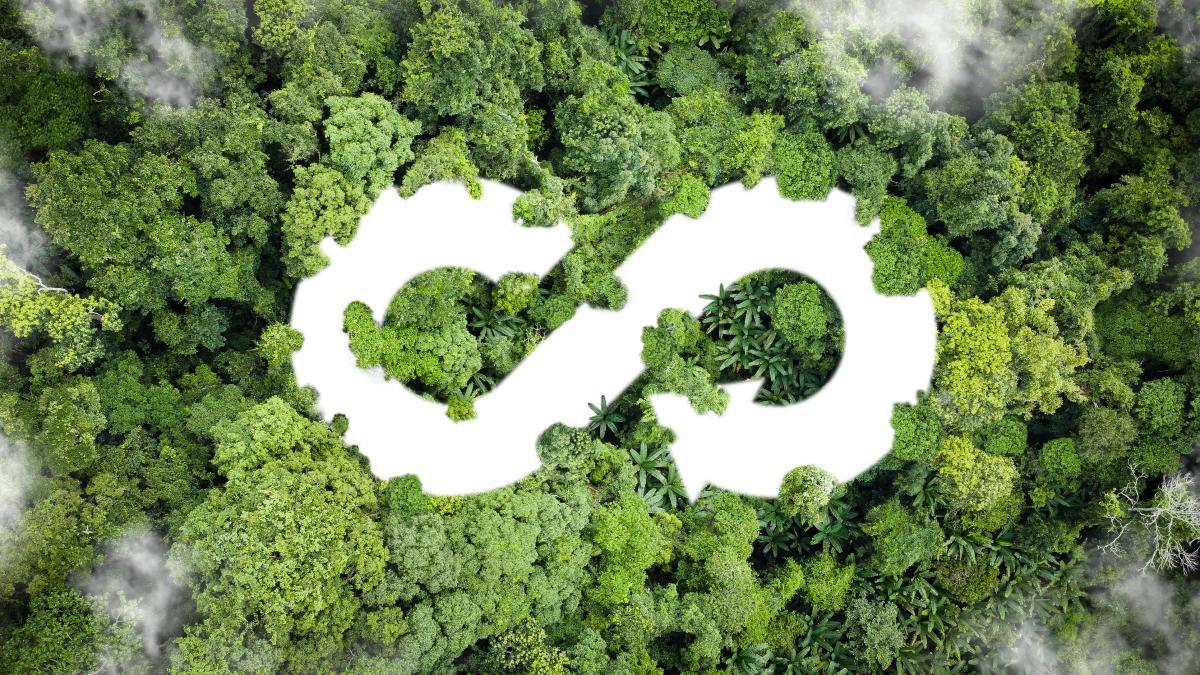
Call for Expressions of Interest - Capacity building programme for one Circular Economy Business Support Organisation (CEBSO) in East Africa
Louise NENNEN | 09/12/2025
Are you a BSO established in either Kenya, Ethiopia, Tanzania, or Uganda and working to advance the circular economy? Are you already active or willing to build circular economy expertise in areas such as critical raw materials, bio-based materials, ICT and electronics, batteries, machinery and equipment, or buildings and construction? The EU Circular Economy Resource Centre (EU CERC) is selecting one CEBSO for a dedicated capacity-building programme!This is your opportunity to strengthen your circular economy services and operational capacity, benefit from EU expertise and knowledge, exchange best practices, and boost your visibility and networks within the global circular economy ecosystem.What to expectBased on priorities identified through an organizational and capacity assessment, you will receive a tailor-made programme which may include:✔ Support to strengthen your CE service offer ✔ Technical assistance on circular economy and sector-specific expertise, access to finance, EU regulations, market access and trade facilitation, M&E and/or partnership development. ✔ Guidance on strategic and organizational development ✔ Coaching sessions with expertsHow to apply?Find more information, including guidelines and admissibility criteria, at the following link: https://www.enabel.be/grants/?in_country=1295&is_status=all#grants and submit your application at : https://submit.link/4nl. The deadline for application is 27 January 2026 at 23:55 CET. Want to know more? Join us for an information session on 13 January 2026 at 10:00 CET, by registering here.Questions? Contact : eucerc@enabel.be
-

Tap & Track: Digitising, professionalising and greening drinking water services in Uganda
Alice BONJEAN | 13/11/2025
Access to safe drinking water remains a challenge in many parts of Uganda. To address this, Practica and GOAL Uganda have joined forces to roll out Tap & Track, an innovative system designed to transform water service delivery. Also known as the Water System Asset Management toolbox, this solution aims to digitalise, professionalise and green drinking water services for selected Area Service Providers and Umbrella Water & Sanitation Organisations. What is Tap & Track ?Tap & Track is a digital application that helps optimise the financial and technical performance of drinking water systems. Beyond efficiency, the system promotes environmentally friendly operations and empowers young and female water point caretakers, ensuring inclusivity in the water sector. This initiative builds on the longstanding partnership between Practica and GOAL Uganda, which previously introduced the TokenTap, a prepaid handpump solution. Together, these innovations are expected to deliver sustainable operation and maintenance of water systems, benefitting the wider WASH (Water, Sanitation and Hygiene) sector.The role of Enabel Innovation HubThe project, running from January 2025 to February 2026, is supported by the EU-funded programme Digital and Green Innovation (DGI) which launched in 2024 a grant on Scaling Digital and Green Innovations implemented by Enabel. Through its Innovation Hub, Enabel provides critical support for scaling (up) promising innovations and solutions like Tap & Track, enabling them to reach more communities and create lasting impact. Why it matters ?By combining digital tools with green practices, Tap & Track addresses key challenges in water service delivery: Improved reliability of water systems ; Enhanced financial sustainability for service providers ; Reduced environmental footprint ; Greater inclusion of women and youth in water management. This project represents a significant step towards safe, sustainable and equitable water access in Uganda and sets the stage for similar innovations across the Global South.
-
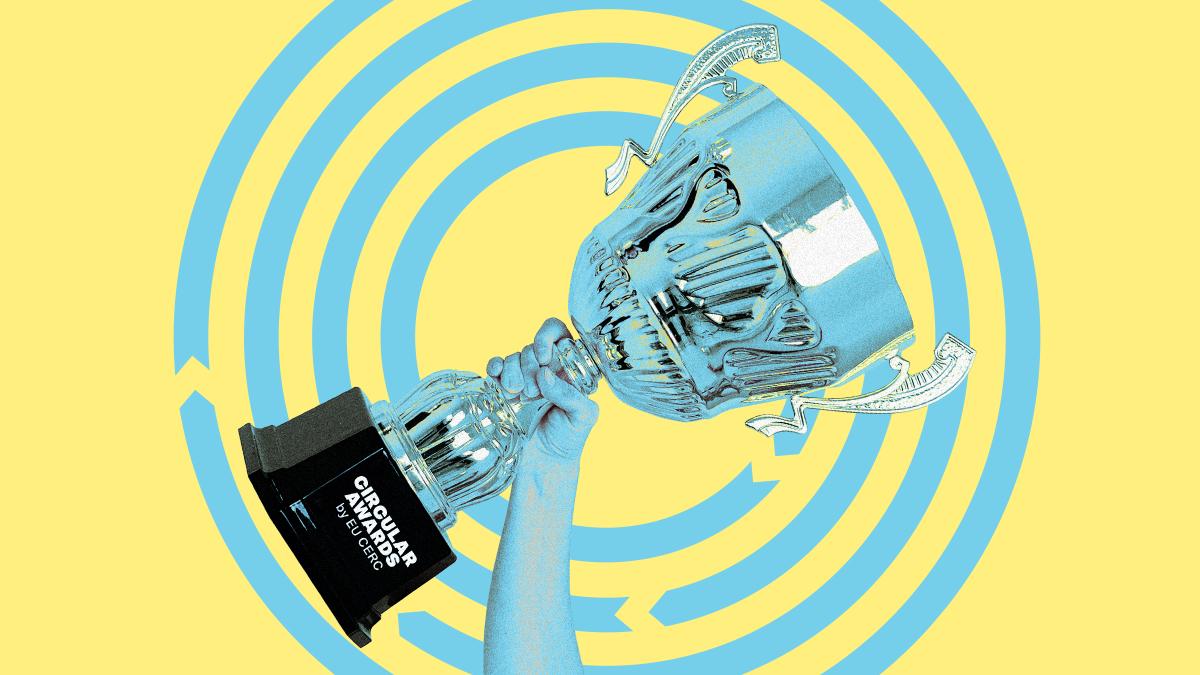
Circular businesses: apply now for The 2026 Business Awards by the EU CERC
Frederik VAN DEN BOSCH | 03/11/2025
The annual Circular Business Awards by the EU CERC recognise and celebrate best practices in the circular economy as implemented and promoted by businesses.Enabel opens applications for The 2026 Business Awards by the EU CERC. Is your company an example of Circular Business? EU CERC (managed by Sitra and Enabel) highlights circular business models, of micro- and SME companies, that are operative in partner countries. This entails limiting your inputs, extending the lifetime of your products and reusing your materials. This year, we invite companies in the Electronics and ICT sector to present their cases. Our second award is for a young woman entrepreneur who has been instrumental for her circular company (sector agnostic). For more information about the awards, please read on the EU CERC website https://www.sitra.fi/en/business-awards-by-the-eu-cerc/ Contact the EU CERC team at Enabel: eucerc@enabel.be
-
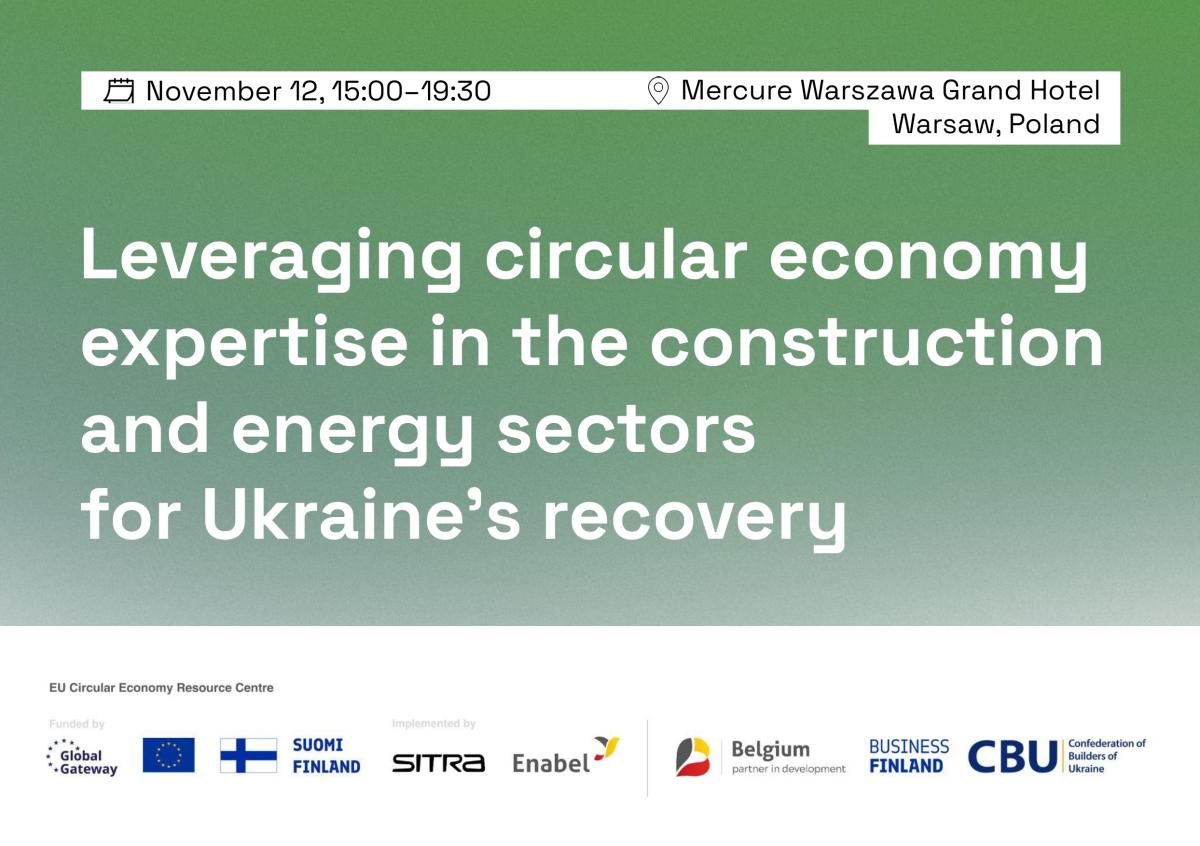
Leveraging Circular Economy Expertise in the Construction and Energy Sectors for Ukraine’s Recovery
Nicoletta FAVARETTO | 21/10/2025
In the context of Ukraine’s recovery, the circular economy offers promising opportunities to rebuild in a more sustainable, resilient, and resource-efficient way, particularly in the construction and energy sectors. By rethinking how materials and resources are produced, circular approaches can drive innovation, reduce dependency on raw materials, and create long-term economic value. In this regard, the EU Circular Economy Resource Centre (EU CERC), the Belgian Agency for International Cooperation Enabel, and Business Finland, organised the peer-to-peer exchange and networking reception: Leveraging Circular Economy Expertise in the Construction and Energy Sectors for Ukraine’s Recovery.” The event was organised on 12 November 2025 in Warsaw, Poland in the framework of the Rebuild Ukraine Conference and Exhibition. It gathered public and private stakeholders from the EU and Ukraine to explore circular economy opportunities, exchange expertise, and build connections that can help shape a resilient and more circular Ukraine.Date: 12 November 2025 Time: 15:00–19:30 CET Venue: Mercure Warszawa Grand Hotel, Krucza 28, 00-522 Warszawa Format: In-person Language: Simultaneous interpretation in Ukrainian and English. Programme15:00 – Coffee and registration 15:00 – Welcome address by Mr. Dirk Deprez, Country Director, Ukraine, Enabel15:35 – Opening remarks by H.E. Luc Jacobs, Ambassador of the Kingdom of Belgium to Ukraine 15:40 – Keynote speech: Circular Economy in Ukraine’s Construction Recovery: Opportunities and Challenges, by Mr. Oleksandr Chervak, Director General of the Confederation of Builders of Ukraine (CBU) 15:50 – Keynote speech: Conducive business environment for circular construction: a perspective from the EU, Mr. Kjetil Tonning, Chairman of the the European Construction Industry Federation (FIEC) Task Force on Ukraine. 16:00 – Circular Solution in Action: perspective from a Ukrainian Community, Mr. Yevhenii Lukianenko, Director of the RegionalDevelopment Agency of the Kharkiv region16:07 – Rebuild Green 2030: From Hackathons to Implementation of New Sustainable Urban Models for Ukraine’s Recovery, by Alissa Bankovska. Founder of SYNCHRO SPACE, Rebuild Green 2030 Co-organizer.16:15 – Circular business pitches: showcasing EU and Ukrainian circular solutions and technologies : Mrs. Lidiia Shymon, Project Manager Neo-Eco Ukraine - Mr. Maciej Chrzanowski, Technical Sales Manager Remagin, ETEX Group, Belgium and Mrs. Tarja Korhonen, Solutions Sales Manager at Valmet Technologies, Valmet, Finland. 16:40 – Financing for green and circular economy, Mr. Jyrki Rautamäki, Senior Consultant, NEFCO 16:55 – Peer-to-peer business exchanges 17:25 – Closing remarks, Mr. Jyrki Härkki, Senior Advisor, Business Finland17:30 : 19:30 – Networking reception
-

EU-Africa: Working together to close the gender digital divide
Heidi EMBONGA DE POURCQ | 27/08/2025
Only 1 in 5 ICT professionals in Europe and Africa are women (Eurostat, 2023). This gender digital divide reflects unequal access, use, and benefits of digital technology - limiting women’s opportunities in education, employment, and financial independence. Closing this gap benefits everyone: it fosters equality, drives economic growth, and strengthens communities. That is why the EU and Africa are joining forces for a more inclusive digital future through the EU’s Gender Action Plan III and initiatives such as the D4D Hub and Belgium’s Digital for Women and Girls. Watch the video to discover how partners are working together to close the gender digital divide.
-
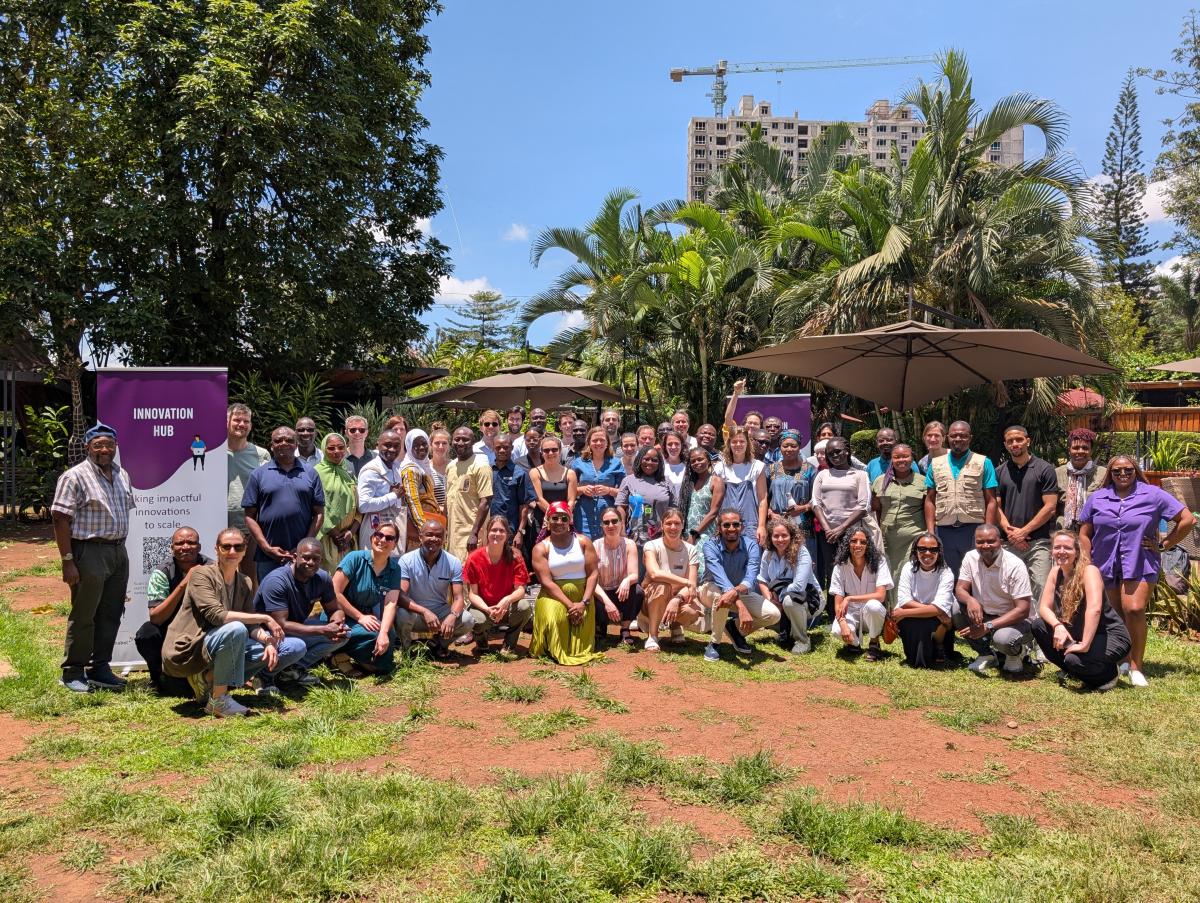
Enabel Innovation Hub Bootcamp : One week in Kampala driving innovation forward
Alice BONJEAN | 30/06/2025
From 7th to 11th April 2025, the Enabel Innovation Hub hosted a dynamic and energising five-day bootcamp in Kampala. Funded by Belgium through the Wehubit 2.0 programme, with the contribution of the European Union via the Data Governance in Africa Initiative (DGA), the Digital and Green Innovation Joint Action (DGI), and the Regional Teachers Initiative for Africa (RTIA), this bootcamp served as a vibrant platform for peer learning, strategic thinking, and cross-sector collaboration. The event brought together 21 promising project teams, each supported through Enabel Innovation Hub and working on innovative solutions to address real-world challenges including climate change, child malnutrition, access to healthcare, and teacher development. Longa and Aledia, two projects financed by Belgium under Wehubit programme took part in the bootcamp. A week of learning, strategy, and KENnection Throughout the five days, participants explored key themes such as scaling strategies, sustainable finance, and partnership-building. Guided by innovation experts from Brink, the participants learned about Behavioural Innovation, a unique approach that blends behavioural science, psychology, and innovation methodologies to drive social impact. For interested projects, the Brink team will continue to provide support in the coming months through action-research collaborations. The bootcamp offered a powerful mix of practical exercises, expert-led sessions, and peer reflection, giving participants the time and space to step back and reassess the long-term vision of their scaling pathways.This bootcamp also forms part of a broader initiative led by Enabel Innovation Hub : the Knowledge Exchange Network (KEN). This network brings together the 21 innovations currently supported by the Innovation Hub and the 27 alumni from the Wehubit 1.0 programme (2018–2023). Through various activities, the KEN aims to create spaces for exchange, shared learning, and peer-to-peer inspiration between current and former project teams, accelerating sustainable impact through social innovation. About the bootcamp, Axelle Callewier, Knowledge Management Officer at Enabel’s Innovation Hub, emphasised how meaningful the interactions were among the 21 projects meeting for the first time, with the added opportunity to connect with Alumni based in Kampala: “The energy in the room was undeniable - it’s incredibly rewarding to feel the collective momentum within this dynamic group of innovators.” Learning from the innovation ecosystem in Kampala A highlight moment of the week was the opportunity to witness innovation in action. Participants visited three social initiatives based in Kampala: Ecoplastile: Tackling plastic pollution by converting waste into sustainable construction materials. Zetu Africa: A design-based social enterprise behind the SeatPack—a school bag that transforms into a bamboo classroom chair. AirQo: A Wehubit 1.0 alumni project, supported between 2018 and 2023. This research project from Makerere University develops low-cost air quality monitoring sensors, which are now being deployed on a large scale in Uganda. These visits offered a real-world perspective on innovation, resilience, and business models. As Angela from AirQo reminded everyone, speaking to the value of the Knowledge Exchange Network (KEN) facilitated by Enabel: “We shine together.” Added value for Wehubit 2.0 programme participants The bootcamp proved highly beneficial for the two Wehubit 2.0 grantees, facilitating their progress in several key areas: The grantees connected with other projects facing the same scaling challenges, particularly concerning integration within the national ecosystem and the initial stages of developing robust business models. The visit to the Ugandan ecosystem at AirQo inspired one grantee, leading to plans for concrete follow-up actions to explore potential new partnerships. The bootcamp enabled the grantees to initiate planning for the upcoming action research support. Also, they explored potential future events participation relevant to innovation, e-health, agritech, and AI, aiming to gain external insights and inspiration. In summary, for the Belgian-supported project, the bootcamp provided a valuable opportunity for the two grantees to exchange insights both amongst themselves and with other participants. This fostered a deeper reflection on the shared challenges in scaling digital social innovations as non-profit entities. Looking ahead This bootcamp in Kampala was more than just a training - it was a catalyst for collaboration, strategic thinking, and inspiration. As Enabel and its partners continue to support innovation across Africa, events like these play a critical role in nourishing the social innovation ecosystem and scaling solutions that truly matter. By investing in people, partnerships, and purpose-driven innovation, we're paving the way for sustainable and social impact.
-
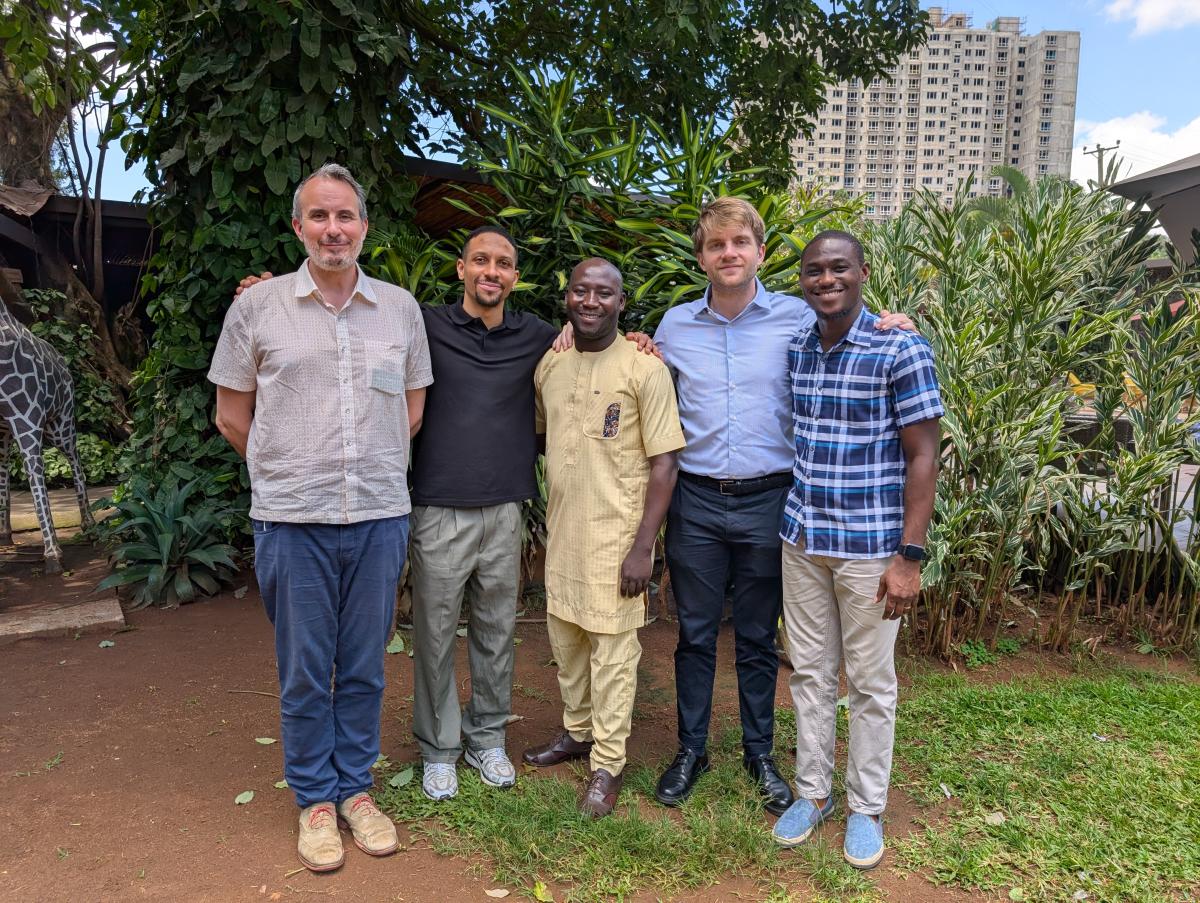
Digital innovations in Mali and Uganda empowering communities through health and agriculture
Alice BONJEAN | 10/06/2025
As part of the Wehubit 2.0 programme, Enabel Innovation Hub launched a Call for Proposals in December 2023 to catalyse digital social innovations in response to the accelerating digitalisation of our societies. The focus was on scaling novel, proven solutions with the potential for meaningful and wide-reaching impact. The Call prioritised disruptive innovations over incremental ones. This distinction was decided on factors such as risk, impact potential, and resource requirements. Ultimately, Wehubit sought innovations that not only address current challenges but also offer scalable, sustainable solutions, positioning Wehubit as a trusted partner throughout the innovation journey. Following a rigorous selection process, 2 projects were chosen to begin their scaling trajectory in August 2024. This process will last between 12 and 24 months, during which the projects will receive financial and technical supports from Enabel Innovation Hub team. This support goes beyond financial aid, encompassing guidance on learning, capacity-building workshops and networking opportunities through events involving other Innovation Hub-supported initiatives funded by Belgium and/or the European Union. Through this approach, Wehubit 2.0 aims to enhance the adoption and accessibility of digital solutions that foster inclusive and sustainable development, reduce inequalities, and empower people in Enabel’s partner countries. The 2 selected innovations are aligned with the strategic priorities of Enabel’s country portfolios and are ready to scale their impact.Meet the 2 winners supported by Enabel Innovation Hub 1. ALeDIA, Mali ALeDIA is a digital application designed to enhance child health in Mali. Implemented in health centres, it optimises the care of children under five by assisting health workers and improving the quality of care. The project aims to expand ALeDIA’s use, strengthen health workers’ skills, generate evidence of its impact, and support its large-scale deployment across Mali. This project is implemented by Terre des hommes (Tdh), a foundation established in 1960 and committed to improving the lives of children worldwide. With a focus on child health, justice, and migration, Tdh works to enhance access to quality care, especially for vulnerable populations in rural and semi-urban areas across Africa. The foundation’s work in childhood nutrition and healthcare aims to reduce preventable deaths and improve long-term health outcomes for children under five.2. Longa, Uganda and Mali Longa is a computer programme capable of understanding spoken Swahili and Luganda, helping farmers make their voices heard. Developed by Farm Radio International (FRI) in collaboration with the Consultative Group on International Agricultural Research (CGIAR), it transcribes, translates, and analyses voice messages from smallholder farmers.This enables FRI to better understand their needs and adapt its radio broadcasts accordingly. By expanding to other languages, Longa strengthens the autonomy of marginalised communities and improves communication between civic and policy stakeholders. This innovative tool enhances feedback mechanisms, promotes inclusivity, and contributes to a more food-secure future. This project is implemented by Farm Radio International, a Canadian non-profit organisation working with radio broadcasters to enhance food security and agricultural knowledge for small-scale farmers in African countries. By integrating innovation into its mission, FRI ensures that underserved communities receive vital information in their own languages.
-
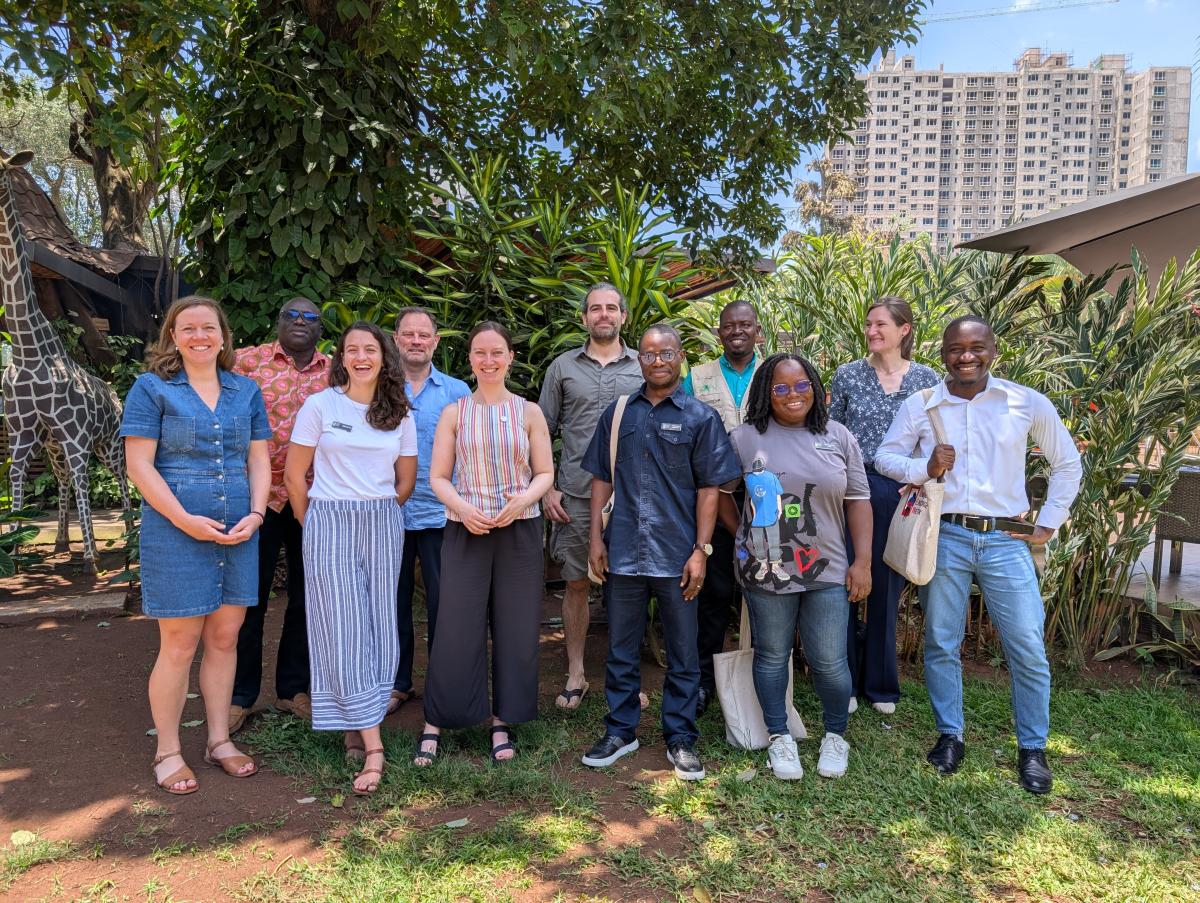
Empowering African innovation: public innovations selected to scale their impact
Alice BONJEAN | 06/06/2025
As part of the Digital and Green Innovation Action, the Enabel Innovation Hub, is implementing the Call for Proposals on Scaling Digital and Green Innovations in Africa. Through a combination of grants and capacity building, the Innovation Hub supports not-for-profit and public stakeholders in designing and implementing data-driven digital solutions to address pressing social challenges. By bridging digital divides—whether urban-rural, gender-based, or generational—the programme aims to strengthen data-informed decision-making and policymaking. Digital and Green Innovations (DGIs) refer to solutions that harness digital tools or technologies to deliver measurable contributions to at least one of the following environmental objectives: Climate adaptation, resilience, or mitigation Protection and restoration of biodiversity and ecosystems Sustainable use and preservation of water and maritime resources Pollution prevention and reduction Resource efficiency Systemic transitions such as the circular economy In this context, digital technologies are not ends in themselves, but instruments for tackling societal challenges and delivering sustainable social and economic impact within planetary boundaries. This Call for Proposals will focus particularly on DGIs aligned with the thematic priorities set by Enabel and its implementing partners under the DGI Joint Action, as well as with the strategic objectives of Enabel’s Country Portfolios.Meet the 5 winners supported for 14 months by Enabel Innovation HubAgritech Moloni, Democratic Republic of the Congo Agritech Moloni is an innovative digital platform that provides Congolese farmers with real-time information on weather, market prices, and sustainable practices tailored to their profile, location, and specific crops. Accessible via SMS and USSD, it promotes digital inclusion even in remote rural areas. The AgriTech Moloni project advocates for sustainable farming practices and aims to increase production while protecting natural resources and strengthening food security.Digi-Tide, Tanzania Digi-Tide is a collaboration of ABALOBI and HIVA-KULeuven, combining social entrepreneurial and academic expertise. After South-Africa and Kenya, this project brings the ABALOBI digital platform to Tanzania, including a mobile app for each fisher to use with individual logbook, a marketplace platform, and a monitor platform. Digi-Tide aims to support small-scale fisheries become greener, digital, and more sustainable. It also facilitates peer learning and builds capacity and networks among Beach Management Units, fishing communities, education actors and other stakeholders in Tanga and Pemba. Digi-Tide will inform and share insights on the Tanzania local fishing sector through videographics based on the project’s ethnographic component.Tap & Track, Uganda The Tap&Track project wants to digitise and formalise rural water systems in Uganda, allowing for more efficient and greener water supply. Practica and GOAL will roll out the Tap&Track system to selected Ugandan Area Service Providers (ASP) – managing handpumps in rural areas – and Umbrella authorities of Water & Sanitation (WatSan) – managing small-scale piped water schemes. Through a web dashboard and a mobile application, these ASP’s and WatSan’s and their caretakers staff, will be able to optimise the financial and technical performance of their drinking water systems, while at the same time greening their operations. Through training and capacity building, the project will especially empower young and female caretakers.DeltaSense, Democratic Republic of the Congo, Uganda, Burundi, Tanzania and Mozambique DeltaSense uses advanced satellite data technologies, validated on the ground by local research institutions, to map and track landscape changes around African lakes. This environmental monitoring, with information available through an open-source remote sensing web platform, is expected to enable authorities and local communities to take action to preserve essential ecosystem services and strengthen their resilience.SAMAD, Benin Access Agriculture’s learning videos in local languages will be made available in a mobile App and through solar-powered smart projectors deployed by grass-roots entrepreneurs, in order to increase the use of agroecology farming techniques. An evidence-based strategy to expand this innovation in Benin and beyond will be developed by engaging multiple stakeholders and collecting end-user feedback.
-
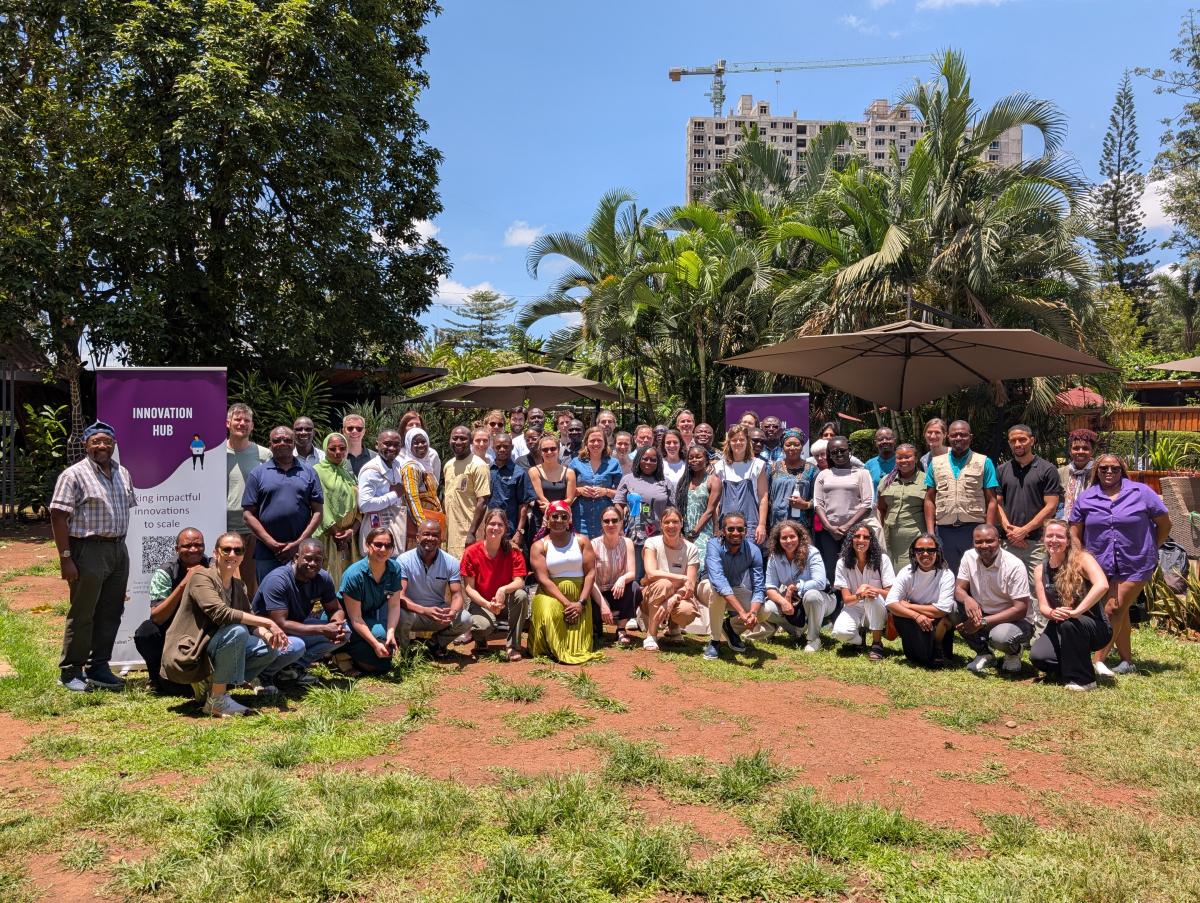
One week in Kampala - Driving digital innovation forward
Alice BONJEAN | 06/06/2025
The Team Europe Data Governance in Africa Initiative and the Digital and Green Innovation Action (DGI) support data-driven and digital innovations in public service, academia, civic engagement and social enterprises. The initiatives gathered innovators in Kampala to shape the future of a sustainable and digital world.A week of reflection, strategy, and shared energyFrom 7 to 11 April 2025, the Enabel Innovation Hub hosted a five-day bootcamp that brought together 21 forward-thinking innovation teams from across Africa. These teams are tackling real-world challenges (from plastic waste and child malnutrition to digital education and clean air) with creative, tech-powered solutions. Throughout the bootcamp, innovators from the Digital and Green Innovation Action and Data Governance in Africa initiatives worked side-by-side to design and scale better solutions. The bootcamp offered a mix of practical exercises, field visits, expert-led sessions and peer reflection, giving participants the time and space to step back and reassess the long-term vision of their scaling pathways. “This wasn’t just a training, it was a shift in how we think about growth,” - said one of the participants. Over the five days, participants explored key themes such as, How to plan for scale and long-term impactBuilding partnerships that lastFinding sustainable financing pathwaysA fresh approach to innovation using behavioural science, guided by experts from Brink These sessions were built around real-world problem-solving, peer exchange, and actionable insights, creating a collective momentum towards solving our current pressing problems. Axelle Callewier, Knowledge Management Officer at Enabel Innovation Hub, explained this best as “The energy in the room was undeniable and it’s incredibly rewarding to feel the collective momentum within this dynamic group of innovators.” Looking ahead This bootcamp in Kampala catalysed collaboration, strategic thinking, and inspiration. As the projects and their implementing partners continue to support innovation across Africa and the world, boot camps like these are critical in nourishing the social innovation ecosystem and scaling solutions that truly matter. More on the Digital and Green Innovation ActionThe Digital and Green Innovation (DGI) project is a Team Europe initiative uniting the European Union, Germany, France, Belgium, Estonia and the Netherlands. The Digital and Green Innovation Action (DGI) is designed to accelerate digital and green innovation in Africa, Asia and Latin America. It offers tailored support to innovators, facilitates stakeholder events, and organises targeted finance matchmaking to foster collaboration and investment.
-
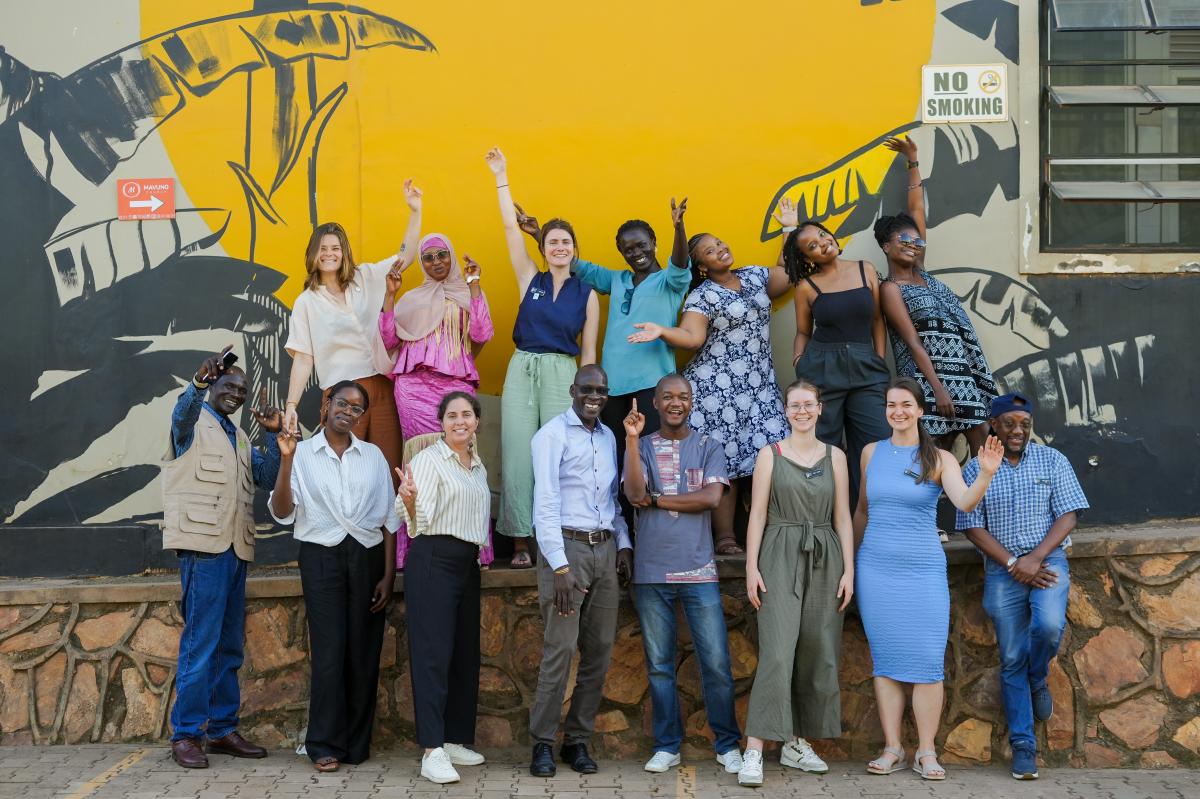
Empowering African innovation: public innovations selected to scale their impact
Alice BONJEAN | 06/06/2025
Through grants and capacity building, the Enabel Innovation Hub enables not-for-profit and public stakeholders to implement data-driven digital solutions to social challenges by bridging digital divides in urban/rural, gender, and youth. Ultimately, the programme improves the quality of decision-making and policy-making using data. Fostering data-driven innovationThe Enabel Innovation Hub, under Team Europe's Data Governance in Africa Initiative aims to identify and support the scaling of Digital Social Innovations (DSIs) in Africa implemented by public institutions, academia, Civil Society Organisations (CSOs), Non-Governmental Organisations (NGOs) and Social Enterprises. The programme began with a Call for Proposals in April 2024, inviting African not-for-profit and public stakeholders to submit proposals for innovations that close existing digital divides/gaps (e.g., urban/rural, gender, youth, etc.) in E-health, digital inclusion, climate change, and governance. 117 applications were received from about 20 African countries by the May deadline. After a rigorous selection process the following public sector DSIs were selected for their strong potential in innovation, societal impact, scalability, and cross-border reach. Aligned with the initiative’s objectives, each selected DSI will have the opportunity to refine strategies, receive technical input to data-challenges, explore sustainable finance and partnerships to scale their project for impact through expert guidance, peer exchange and workshops.Meet the 6 winners supported by Enabel Innovation HubiKnowFarm, Uganda Implemented by Welthungerhilfe (WHH), iKnowFarm is a data-driven app revolutionising agriculture in Uganda through its climate-smart approaches. By providing farmers with real-time insights, expert guidance, and market access, iKnowFarm drives sustainable farming practices and fosters economic growth across Uganda.MICE-RIoT, South Africa Implemented by Planact, the MICE-RIoT (Monitoring Indoor Climate Extremes involving Residents and IoT) project harnesses IoT technology to monitor indoor climate conditions in informal settlements in South Africa. By using wireless sensors, it collects and analyses real-time data on indoor heat levels, empowering residents to address health risks and advocate for improved housing. The system includes community training, data visualisation dashboards, and policy advocacy, intending to influence housing regulations to enhance climate resilience. This scalable, open-source solution combines community-driven insights with technological innovation, promoting sustainable housing practices and improving living conditions for vulnerable populations exposed to extreme heat.Citizen Science for Water Management (Mozambique, Botswana, South Africa) International Water Management Institute (IWMI) ‘s Citizen Science Initiative in the Limpopo River Basin aims to empower local communities to manage their water resources actively. By providing user-friendly tools such as MiniSASS and clarity tubes, along with AI-driven monitoring systems, the initiative enables residents to collect essential data on water quality and flow. This data will be uploaded to a central digital platform, analysed, and integrated into a Digital Twin of the river basin. The insights gained from this real-time data will support decision-makers, improve water management practices, and promote the sustainable protection of this vital ecosystem for future generations.FAIR (Ethiopia, Kenya, Uganda, South Africa) The Europe External Programme with Africa (EEPA) provides interoperable, secure datapods that enable the safe storage and analysis of refugee data, enhancing rapid responses to human rights abuses. Built on open-source technology and aligned with the FAIR principles – Findable, Accessible, Interoperable, and Reusable – these datapods prioritise data privacy and ownership while enabling insightful analysis. Through co-created user interfaces and comprehensive training, EEPA empowers humanitarian organisations to protect vulnerable communities and advocate effectively for their rights.REC Maternity, Guinea Since 2019, Terre des Hommes (TdH) has been deploying a decision-support tool called REC Maternity. This tool aims to improve the quality of care for mothers and newborns. By 2026, the governance of data collected through the use of this tool will be strengthened, enhancing the accuracy of diagnoses, protecting patients, and informing decision-makers. Integrated into the national health system, this initiative prepares for a sustainable and responsible scaling-up of REC Maternity in Guinea and across Africa.RADAR, Benin, Democratic Republic of the Congo Implemented by Handicap International, RADAR is an innovation that focuses on the implementation of the Rehabilitation module within the District Health Information System 2 (DHIS2) in Benin and the Democratic Republic of Congo. This open-source software is customised to collect, analyse, and visualise rehabilitation data, integrating key indicators to strengthen health information systems. By facilitating routine monitoring and supporting data-driven decision-making, the project aims to enhance rehabilitation services. It emphasizes local engagement, the training of healthcare professionals, and alignment with existing health infrastructures and policies, ensuring sustainability and scalability across Africa.
-
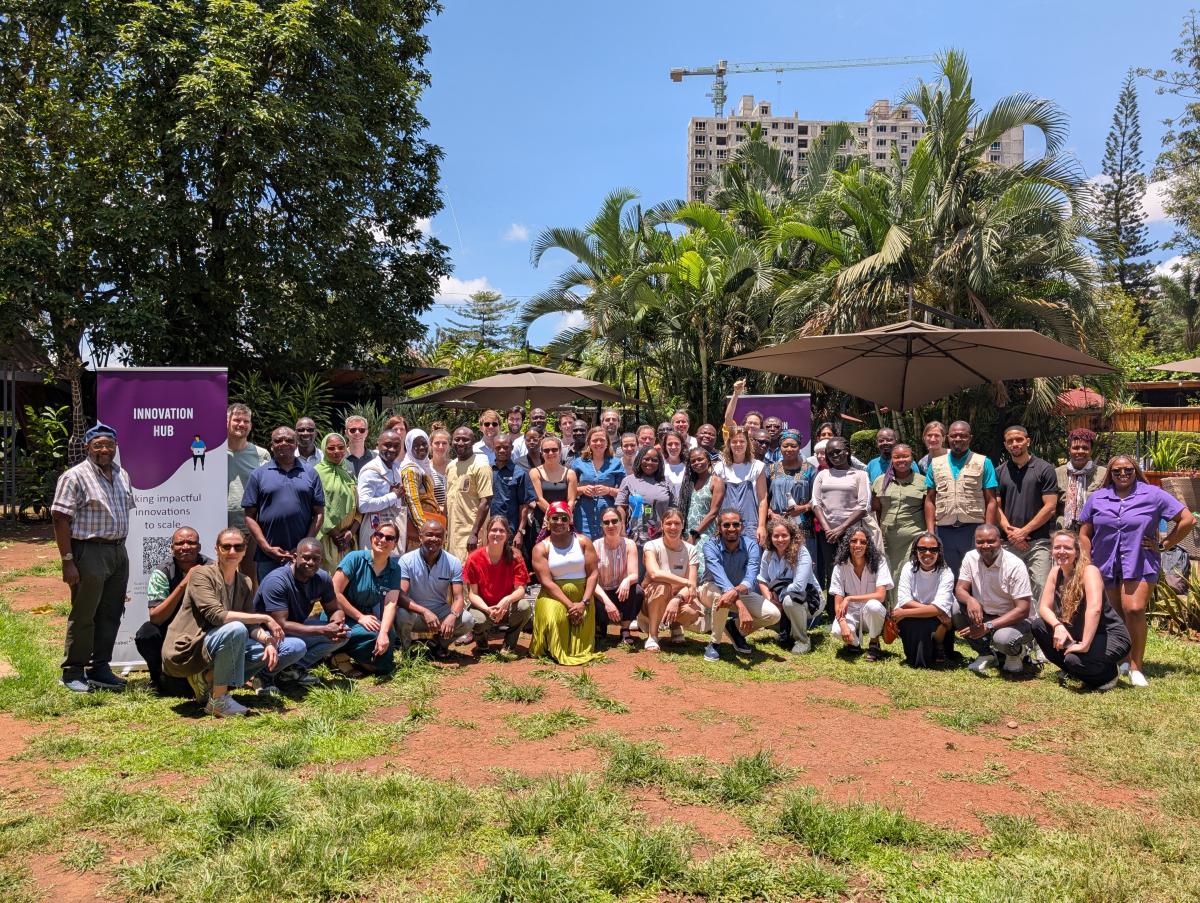
One week in Kampala - Driving digital innovation forward
Alice BONJEAN | 06/06/2025
The Team Europe Data Governance in Africa Initiative and the Digital and Green Innovation Action (DGI) support data-driven and digital innovations in public service, academia, civic engagement and social enterprises. The initiatives gathered innovators in Kampala to shape the future of a sustainable and digital world.A week of reflection, strategy, and shared energyFrom 7 to 11 April 2025, the Enabel Innovation Hub hosted a five-day bootcamp that brought together 21 forward-thinking innovation teams from across Africa. These teams are tackling real-world challenges (from plastic waste and child malnutrition to digital education and clean air) with creative, tech-powered solutions. Throughout the bootcamp, innovators from the Digital and Green Innovation Action and Data Governance in Africa initiatives worked side-by-side to design and scale better solutions. The bootcamp offered a mix of practical exercises, field visits, expert-led sessions and peer reflection, giving participants the time and space to step back and reassess the long-term vision of their scaling pathways. “This wasn’t just a training—it was a shift in how we think about growth,” - said one of the participants. Over the five days, participants explored key themes such as, How to plan for scale and long-term impactBuilding partnerships that lastFinding sustainable financing pathwaysA fresh approach to innovation using behavioural science, guided by experts from Brink These sessions were built around real-world problem-solving, peer exchange, and actionable insights, creating a collective momentum towards solving our current pressing problems. Axelle Callewier, Knowledge Management Officer at Enabel Innovation Hub, explained this best as “The energy in the room was undeniable and it’s incredibly rewarding to feel the collective momentum within this dynamic group of innovators.” Looking ahead This bootcamp in Kampala catalysed collaboration, strategic thinking, and inspiration. As the projects and their implementing partners continue to support innovation across Africa and the world, boot camps like these are critical in nourishing the social innovation ecosystem and scaling solutions that truly matter. More on the Data Governance in Africa Initiative The Team Europe Data Governance in Africa Initiative is implemented with the financial support of the European Union and Belgium, Estonia, Finland, France and Germany as part of the EU Global Gateway Strategy. It supports the African Union (AU) and its Member States in creating human-centric, development-focused data policies at all levels, aiming to harmonize regulations, enable cross-border data flows, and promote investment in secure and sustainable data infrastructure to support a single digital market in Africa.
-
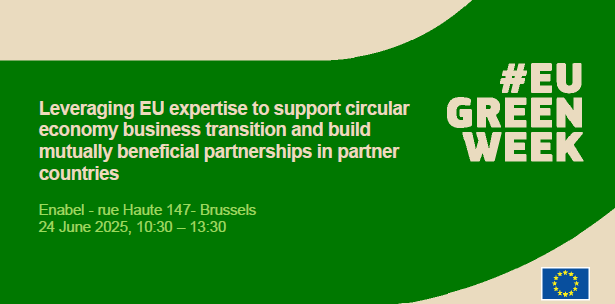
EU Green Week - Partner Event
Nicoletta FAVARETTO | 28/05/2025
We are pleased to invite you to the event Leveraging EU expertise to support circular economy business transition and build mutually beneficial partnerships in partner countries. This panel discussion and networking lunch organised by the EU Circular Economy Resource Centre (EU CERC) in the framework of the EU Green Week will take place on the 24th June 2025 at Enabel, Rue Haute 147, Brussels, from 10:00 to 13:30.EU CERC is a five-year project funded by the European Union and the Ministry of Foreign Affairs of Finland, and implemented by the Finnish Innovation Fund Sitra and Enabel. The Centre aims to increase the uptake of sound and inclusive circular economy policies and business models, based on peer-to-peer exchanges and partnerships between EU and partner’s country stakeholders. The EU CERC operates through three interlinked labs: the Policy lab, the Knowledge lab and the Business Lab.This partner’s event, organised by the EU CERC Business Lab, will explore how the EU know-how can support businesses in partner countries in their transition to a circular economy, while fostering mutually beneficial partnerships. The event brings together businesses, business associations, research and technical organisations, policymakers, and peer EU initiatives, shedding lights on opportunities and successful business collaboration between the EU and partner countries. When: 24 June | 10:00 CEST Format: In-person Detailed event programme: see attached Registration, before the 17 June: Event Registration The agenda : 10:30 – Welcome address by Jean VAN WETTER, Managing Director, Enabel 10:40 – Presentation of the EU Circular Economy Resource Centre 11:00 – Panel discussion with public and private sector representatives on How the EU know-how can support the transition of business towards circular economy in partner countries, and create mutually benefiting partnerships? Philip MARYNISSEN, Business Development Manager Circular Economy and Industrial Emissions, VITO-Flemish Institute for Technological Research Brigitte MOULIGNEAU, Transition Manager, Vlaanderen Circulair Bernard CRABBE, Head of Sector Environment & Circular economy, DG INTPA Laura CORCORAN, Co-Founder Soleil Power (circular business Uganda) Belgian circular business (tbc) 12:00 – Interactive Q&A with the audience 12:25 – Closing remarks by Evelien MASSCHELEIN, Director Expertise, Enabel 12:30 – Networking lunch
